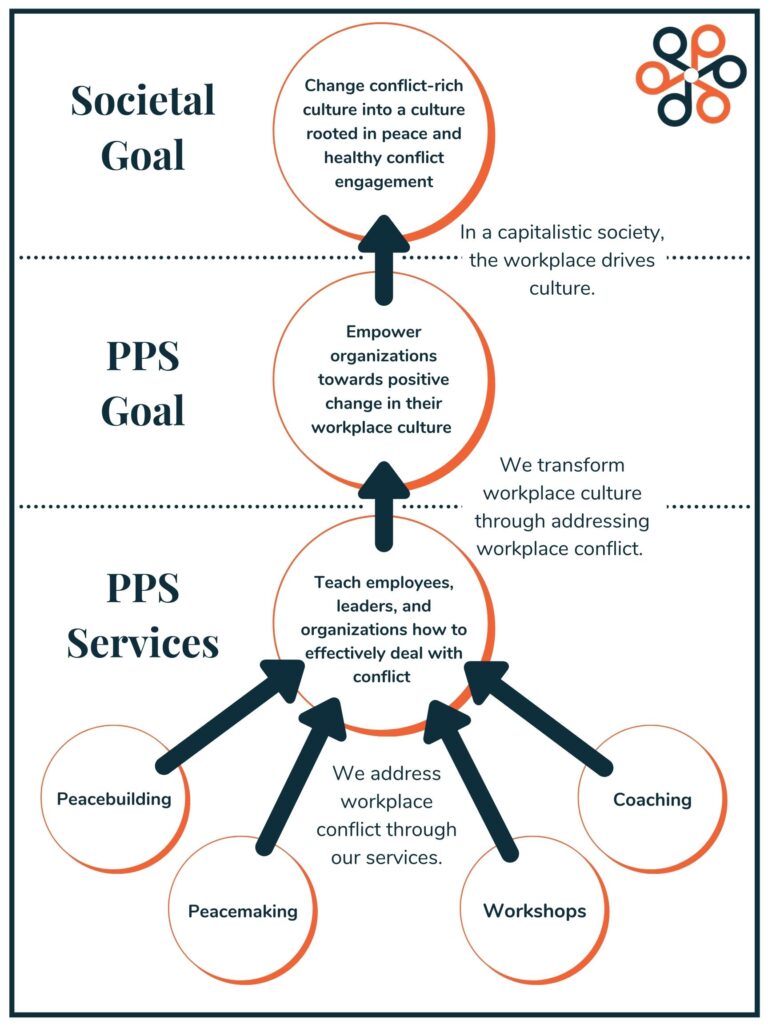Theory of Change: From Workplace to Broader Culture
Our Theory of Change: Peaceful Workplaces to Peaceful Communities
Let’s face it, conflict is everywhere. Whether in our news headlines, at our workplaces, or in our interpersonal relationships, we are bombarded by conflict all of the time. Every day, we are inundated with information compelling us to believe that political polarization, toxic workplace cultures, and failing relationships dominate our culture.
In short, we are made to believe that the repercussions of poorly handled conflict are a permanent driving force in our society. This begs the question: What role do we play in this seemingly endless amount of conflict we see day-to-day?

A process of goal-mapping called Theory of Change asserts that long-term change in an organization or society is achieved by identifying all the necessary preconditions needed to reach such change. For Pollack Peacebuilding Systems (PPS), this begs another question: If our goal is to change our conflict-rich culture into a culture rooted in peace and healthy conflict engagement, what are the necessary preconditions we must meet to reach that goal?
Considering the fact that the US and much of the world is capitalistic, we can argue that our workplaces shape our cultures. We at PPS believe that by changing our mindset on how we interact with each other and with conflict at the workplace, we can gradually change our culture. By doing this, we bring more peace into our culture and world, making it a better place to live for everyone.
Considering this, Pollack Peacebuilding Systems aims to empower organizations to create this positive change. Through our services, we believe that we not only benefit the workplace, but impact interpersonal relationships, political dialogue, societal tensions, and all other areas of life where conflict can run rampant. While conflict is an inevitable part of life, it can be productive and positive or hostile and negative, depending on how we respond to it. By showing employees, leaders, and organizations how to deal with conflict effectively at work, we empower them to work towards positive change in their own communities and ultimately in the broader culture.
We believe that this positive change is not restricted to the workplace, but is rooted in a commitment to peace-oriented conflict engagement, which can be applied to friendships, relationships, societal dialogue, and through the concept of theory of change, the broader culture.





